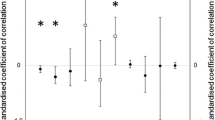Abstract
We tested female choice for male wing and tarsus length and body mass in the kestrel (Falco tinnunculus), a species in which males average about 10% smaller than females. We also studied how male characters are related to their hunting success. In the laboratory, females preferred lighter males with shorter tarsi as mates, if the difference in those characters between competing males was larger than average. Lighter and shorter-winged males seemed to be better hunters than heavier and longer-winged males. Field observations in a year in which voles were scarce suggested that shorter-winged males were also better food providers in courtship feeding than longer-winged males,although in good vole years such a relationship was not found. We argue that females may prefer to pair with smaller males, because they have higher flight performance and better hunting success than heavier males. By doing so, females may gain direct breeding advantages. We conclude that both female choosiness and the hunting efficiency of males well contribute to reversed sexual size dimorphism (RSD, females larger than males) in the kestrel.
Similar content being viewed by others
Author information
Authors and Affiliations
Additional information
Received: 18 July 1995/Accepted after revision: 17 August 1996
Rights and permissions
About this article
Cite this article
Hakkarainen, H., Huhta, E., Lahti, K. et al. A test of male mating and hunting success in the kestrel: the advantages of smallness?. Behav Ecol Sociobiol 39, 375–380 (1996). https://doi.org/10.1007/s002650050303
Issue Date:
DOI: https://doi.org/10.1007/s002650050303




